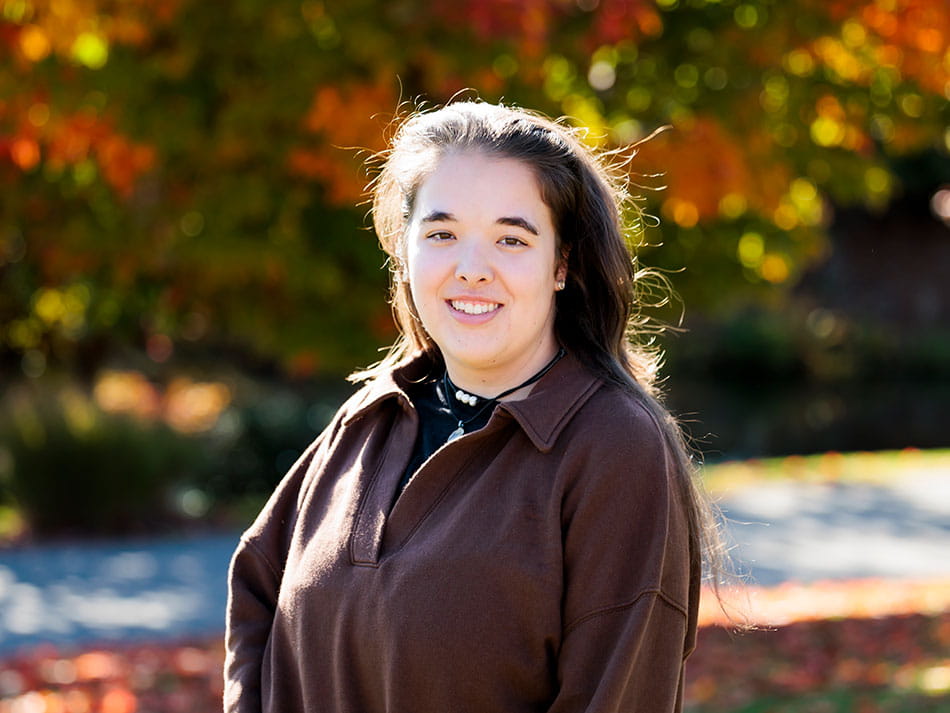Being a first-year student can be challenging. You’re in a new environment with unfamiliar people and places. For many, it’s the first time away from home for an extended period, which can be daunting. But remember, you’re not alone—everyone goes through this transition and faces their own struggles.
Like any new Gull, it’s essential to establish stability, balance, and routine. A key part of thriving on your own is making new friends, which can induce anxiety. However, stepping outside your comfort zone by getting involved in various activities is one of the best ways to connect with others.
“Getting involved means pushing through some initial anxiety,” noted Sam Alexander, Associate Dean of Humanities and Communication. “But students should feel comfortable engaging at whatever level feels right for them.”
On-campus clubs and organizations welcome all kinds of participants. “We need everyone, from those who take on leadership roles to those who simply show up regularly and share their ideas,” said Alexander.
Endicott offers more than 50 clubs, all accessible on MyEndicott under Student Affairs, as well as volunteering opportunities. You can also stay informed about campus happenings through the weekly Blue Buzz newsletter, a valuable resource for discovering new activities at the Nest.
“Remember that Endicott is here to enrich your life,” Alexander added, “and you have a right to benefit from all the incredible opportunities this campus has to offer!”
So, embrace the new opportunities on campus—there’s so much to explore.
Another excellent resource is the Center for Belonging, which fosters a culture of inclusion at Endicott. This center is home to various faith communities and collaborates with organizations like the Students of Color Association and Endicott Pride. It also supports programs such as Dine and Dialogue and offers meditation and mindfulness practices. If you’re anxious about classes, internships, or anything else, the Center for Belonging is a fantastic place to find stability.
If these activities don’t resonate with you, consider exploring humanities programs, from majors like English or history and minors in gender studies or languages to writing for publications like The Endicott Observer and The Endicott Review. The humanities can help you discover where you belong in this new environment and the world, as the field focuses on the human experience.

“In a larger sense, the humanities refers to the branch of learning that studies what it means to be human. Humanists study core questions about our history, shared stories, and search for meaning, and one of the main benefits of studying the humanities is the opportunity to reflect on some of those big, difficult, and often controversial questions,” said Alexander.
In the process, he said, students also develop skills that help them become effective professionals, citizens, and leaders. “These include critical reasoning, clear communication, imagination, and judgment—and those last two are becoming more and more important as AI transforms our workplace,” he said.
Even if your major doesn’t align with these areas, students can still participate in events at the Tadler Center for the Humanities, including this year’s Series for Civics under our academic theme “Join the Conversation.” You might meet new friends, an interesting faculty member, or discover a newfound interest while learning something new.
“The best part of getting involved on campus, in general, is that it can help students connect with others who share their interests—whether it’s a love of books and writing or a passionate interest in history,” Alexander said. “Beyond that, getting involved also teaches students valuable lessons about organization and leadership that they will use well beyond their graduation from Endicott.”
Establishing a routine is crucial as well. The Nest offers numerous opportunities to help you create the perfect schedule, including internships, work-study positions, and on-campus jobs. Internships allow you to build your professional network, develop skills like communication and collaboration, and enhance your ability to receive feedback—all of which can be further refined in the classroom, noted Dale McLennan, Dean of the Internship & Career Center.
“Meet with your internship advisor early in the process,” McLennan recommended. “They can help you understand the available resources and develop a plan for your search.”
McLennan emphasized that internships are fundamentally about learning, and students aren’t expected to know everything. “A strong work ethic, a willingness to learn, and a positive attitude will contribute to your success as an intern, helping alleviate some of the stress associated with the role,” she said.
These experiences are invaluable for post-college life and job readiness. “Internships can make students feel more connected to their major because they see how what they are studying can be applied in ‘the real world,’” she added. “In my opinion, one of the best things about internships is seeing students become more confident in their skills and ability to contribute in the workplace.”
Internships and even on-campus work-study roles provide structure and routine, helping you integrate into the campus community while building your resume. Faculty and staff are here to support you, and on-campus jobs are welcoming spaces designed to help every student succeed.
Now that I’m a senior, I can confidently say that the friends you make in your first year will support you as you navigate what works—and what doesn’t—for both yourself and your future. While these early steps and new connections may sometimes challenge you, they ultimately lead to a rewarding experience as you find your place in your new Nest.
Isabela Schmidt ’25 is an English major and the student correspondent for News at the Nest for the fall 2024 semester.


